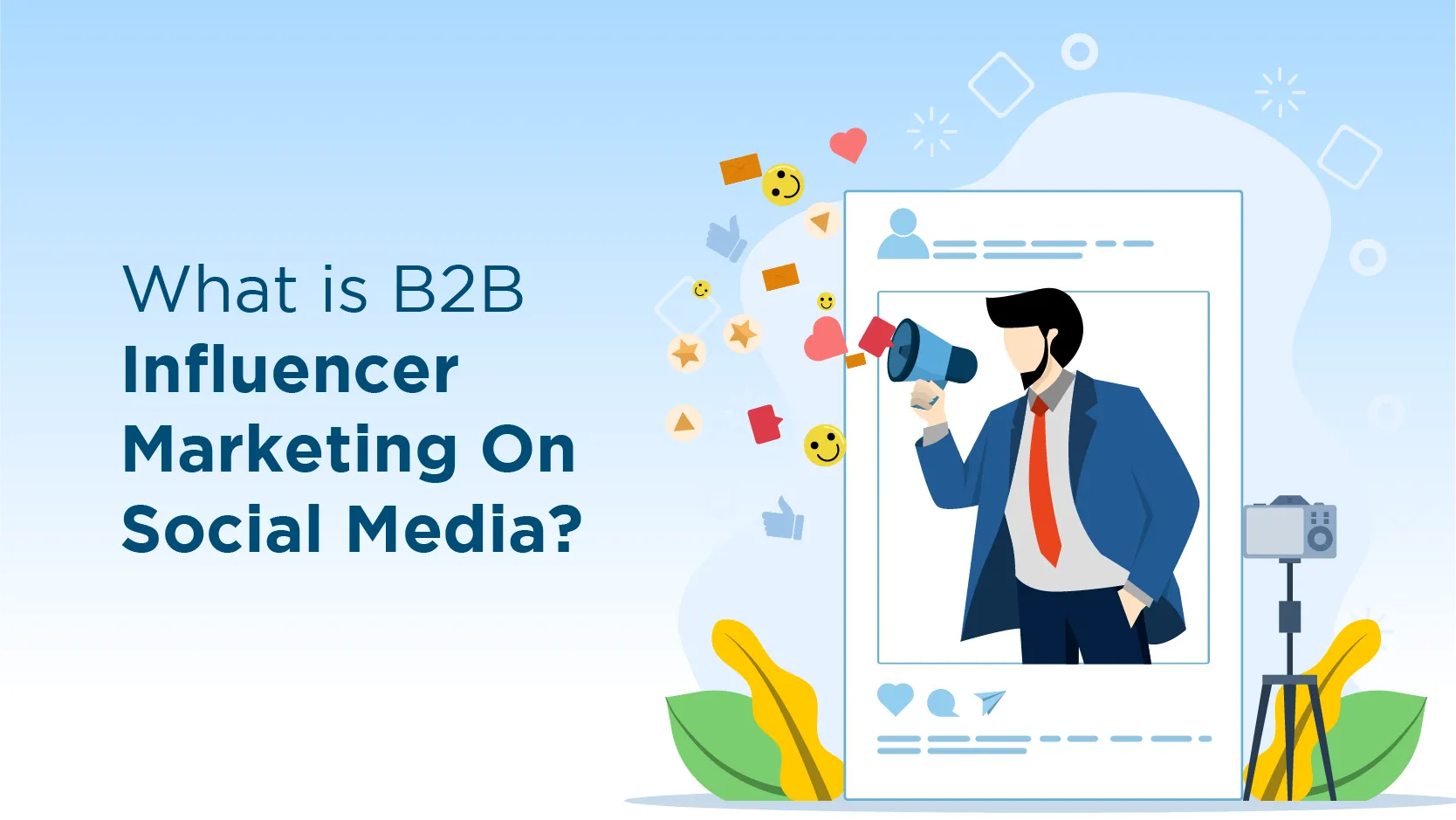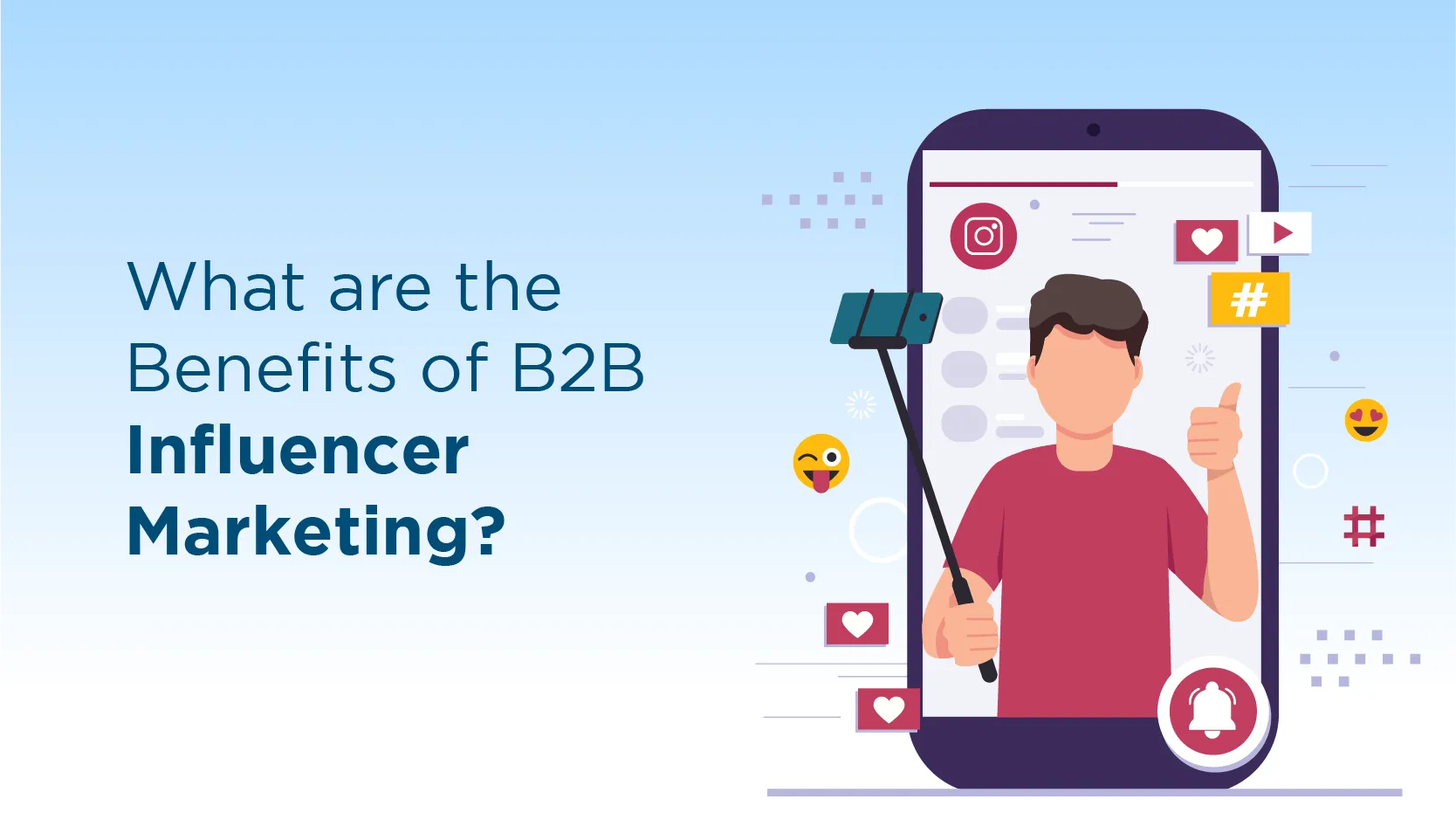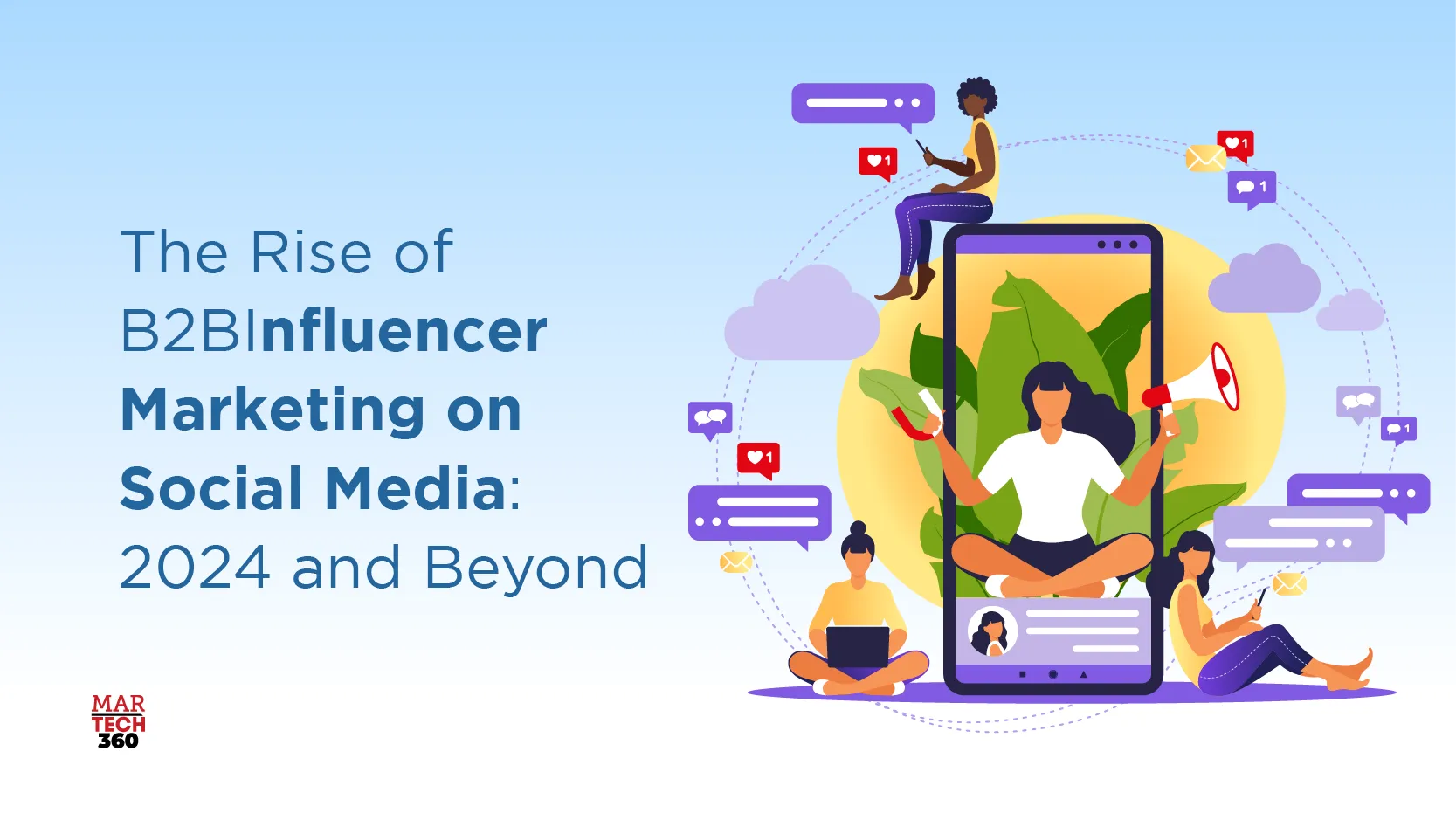B2B influencer marketing on social media is one of the keys to B2B marketing success.
Influencer marketing in the B2B landscape includes collaboration between creators and brands to create and share content about the products and services the organization offers. The influencers that business leaders come across on their social media feeds could be the connecting bridge to their B2B marketing success.
According to a report by Ogilvy titled “The Global Rise of B2B Influencer Marketing“, 67% of respondents stated that their B2B Influencer campaigns had more impact on their marketing performance compared to the brand-only marketing strategies.
B2B influencer marketing on social media is not a trend that will phase out, but it is here to stay. In this blog, let us have a look at B2B influencer marketing, its benefits, and how CMOs can integrate it into their marketing campaigns.
What is B2B Influencer Marketing On Social Media?
 Influencer marketing is quite similar to word-of-mouth marketing. Enterprises can collaborate with social media influencers that have a lot of engagement and huge numbers of followers within a particular niche or audience to promote the organization’s products and services through their social media channels. Based on the agenda of the campaign, businesses can create a single post or series of posts incorporating the USP (unique selling points) of the products and services. The aim of any B2B influencer marketing strategy is primarily to increase brand awareness among the influencer’s audience in a manner that helps develop trust with the target audience.
Influencer marketing is quite similar to word-of-mouth marketing. Enterprises can collaborate with social media influencers that have a lot of engagement and huge numbers of followers within a particular niche or audience to promote the organization’s products and services through their social media channels. Based on the agenda of the campaign, businesses can create a single post or series of posts incorporating the USP (unique selling points) of the products and services. The aim of any B2B influencer marketing strategy is primarily to increase brand awareness among the influencer’s audience in a manner that helps develop trust with the target audience.
The perfect B2B influencer marketing collaboration can have the capability to influence buying decisions for millions of followers. It is one of the most effective ways to build brand credibility. These partnerships portray that the enterprise is reliable, liked by others, and delivers the promises made, similar to word-of-mouth marketing before the digital-first approach.
What are the Benefits of B2B Influencer Marketing?
 The following are the advantages of leveraging influencers as part of the B2B marketing strategy:
The following are the advantages of leveraging influencers as part of the B2B marketing strategy:
- Partnerships with influencers offer a unique perspective that resonates with the target B2B audience.
- Influencer marketing enables enterprises to establish themselves as thought leaders. It helps put a highlight on the brand’s existing content and make the brand more visible.
- These strategic business partnerships allow access to invaluable networks and professional connections that enterprises would not have been able to connect otherwise.
- B2B influencer marketing on social media allows organizations to establish authentic professional credibility to provide answers to the target audience’s pain points or bottlenecks.
Also Read: 7 Best Practises To Develop Effective B2B Social Media Advertising Strategies
Strategies to Develop a B2B Influencer Marketing on Social Media
Initiating a B2B influencer marketing campaign can seem challenging. Here are a few strategies that CMOs can consider to design and deploy influencer marketing on social media:
1. Align the B2B Influencer Marketing Objectives with Business Objectives
Integrating any new initiatives just to get on the bandwagon will not give the expected results. If CMOs have additional budgets to spend on, they should definitely explore incorporating influencer marketing programs as a part of their B2B marketing strategy. While drafting a campaign, it is essential to have a precise understanding of the business objectives that could be achieved through this initiative. Whether the organization is trying to create brand awareness about its products or services or launching a new product, B2B marketers can design an influencer marketing strategy accordingly.
2. Explore Other B2B Influencer Marketing in the Industry
Before developing a strategy, it is crucial to research how competitor brands in the industry are collaborating with other influencers. It is a perfect starting point for businesses to craft their approach. Evaluating the competitors can give the marketers content inspiration ideas that resonate with the target audience. It could also offer insight into what works and what does not. Businesses should implement search parameters to generate a query that determines the sponsored post. This strategy can help determine current trends and unveil influential figures that make an impact in the respective industry.
3. Create Content That Perfectly Resonates With the B2B Audience
One of the most effective ways to determine what resonates with the target audience is to dig into past data. The previous customer engagement data can serve as a guide to design the themes, networks, and formats to collaborate on B2B influencer marketing on social media to make an impact. There are various social media analytics tools that offer insights into what content aligns seamlessly with the target audience.
4. Design Clear Creative Briefs
After B2B marketers are done with their research phase, it is crucial to execute the ideation process efficiently. The creative brief of the B2B influencer marketing strategy should be shared with teams across the organization to ensure they also support the campaign. Especially in the case of the product launch, the creative brief should also be shared with the sales and customer support teams to ensure alignment across departments. The creative brief of the B2B influencer marketing on social media should provide guidance to the influencers to ensure they do not compromise on the campaign’s creativity, message, and uniqueness.
5. Define Budgets
One of the significant influencer marketing challenges revolves around balancing the influencer relationships and budget constraints. These bottlenecks are inevitable, and marketers have to come up with a sophisticated solution to overcome these challenges. CMOs can draft a detailed document that entails all the details about how to overcome the potential pitfalls.
It is essential to have a clear understanding of how much budget could be allocated toward the B2B influencer marketing campaigns. Once the budgets get allocated, marketers can identify the influencers that they can afford in the given budget.
CMOs also need to designate resources to manage and negotiate the influencer marketing campaign and contracts. Marketers should have an approximate timeline for executing the campaign right from ideation to execution. There are various marketing tools available that can assist in managing various influencer campaigns, their budgets, and contracts.
Drive Success with B2B Influencer Marketing Campaigns
There are exponential opportunities that B2B marketers can identify and seize on to expand their reach. In the same report by Oligvy, 40% of the B2B marketers stated that they generated warmer leads and witnessed an increase in the number of leads and sales conversions after implementing an influencer marketing strategy. The data proves that the rise of B2B influencer marketing on social media is inevitable in the near future.


Comments are closed.